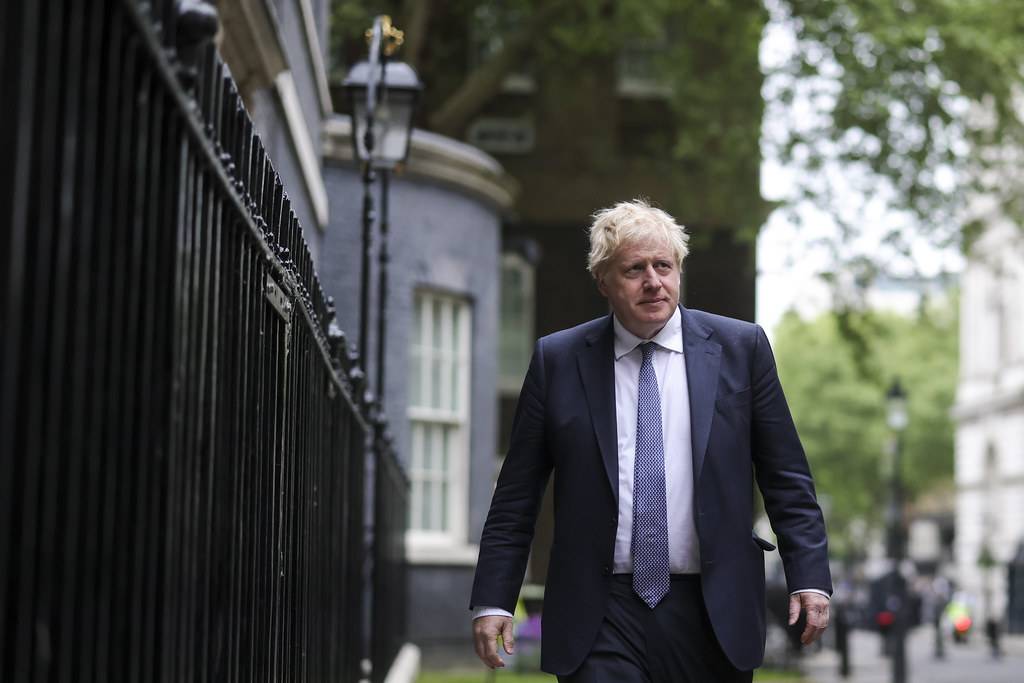Johnson highlighted steps the government was already taking to help households with rising bills and said he and chancellor Rishi Sunak would be “saying more about this in the days to come”…reports Asian Lite News
Boris Johnson on Tuesday unveiled plans for legislation to support UK economic growth and reduce regional inequalities, but Labour accused the prime minister of failing to tackle the growing cost of living crisis.
Johnson highlighted steps the government was already taking to help households with rising bills and said he and chancellor Rishi Sunak would be “saying more about this in the days to come”.
But government officials subsequently clarified ministers were not about to hold an emergency Budget of the kind Labour has demanded to deal with the cost of living crunch.
The government unveiled its legislative programme for the coming year in a Queen’s Speech delivered by Prince Charles, heir to the throne. The Queen decided against attending the state opening of parliament for the first time since 1963 because of what Buckingham Palace said were “episodic mobility problems”.
The Queen’s Speech included 38 bills for the 2022-23 parliamentary session, as Johnson also highlighted how the government had already assembled a £22bn package of support for households to address the rising cost of living.
But he warned the government could not fully shield Britons from the impact of soaring inflation, saying “no country is immune” from huge disruptions to the global economy caused by Russia’s invasion of Ukraine.
The Bank of England last week warned the UK economy would slide into recession later this year as higher energy prices push inflation above 10 per cent.
Johnson stressed the need for reforms to “turbo-charge the economy”, and the importance of repairing the public finances after the Covid-19 pandemic, as he told MPs the government “cannot simply spend our way out of the country’s problems,” the Financial Times reported.
But Labour leader Sir Keir Starmer said Britain needed a “government of the moment” instead of the current Conservative administration.
He added the Queen’s Speech was “bereft of ideas or purpose, without a guiding principle, or a road map for delivery”, and warned that the country was staring down the barrel of a “stagflation crisis”.
Johnson was keen to demonstrate that, after two years spent dealing with the coronavirus crisis, he had not forgotten about his 2019 election pledge to “level up” left-behind areas by reducing regional inequalities.
A levelling-up and regeneration bill will aim to expand devolution in England through the creation of more directly elected mayors, provide some modest planning reforms to support housebuilding, and give local councils additional powers to bring empty commercial premises back into use.
Among other flagship measures was a financial services bill aimed at cutting red tape in the City of London, supporting the safe adoption of cryptocurrencies and protecting consumers from scams.
The government also signalled that it was prepared to unilaterally overhaul Northern Ireland’s post-Brexit trading arrangements should talks with the EU about potential changes fail to yield acceptable results for UK ministers.
An energy security bill will help accelerate the UK’s shift towards its net zero emissions goal by 2050, partly through funding mechanisms for hydrogen-based power and carbon and capture storage technology.
Ministers will push forward with a bill designed to modernise the business rates system after complaints from companies that the property-based tax is too expensive.
But reforms to improve auditing and corporate governance and put a new technology regulator on a statutory footing were announced only as “draft” bills, which means they will not become law until the 2023-24 parliamentary session at the earliest.

